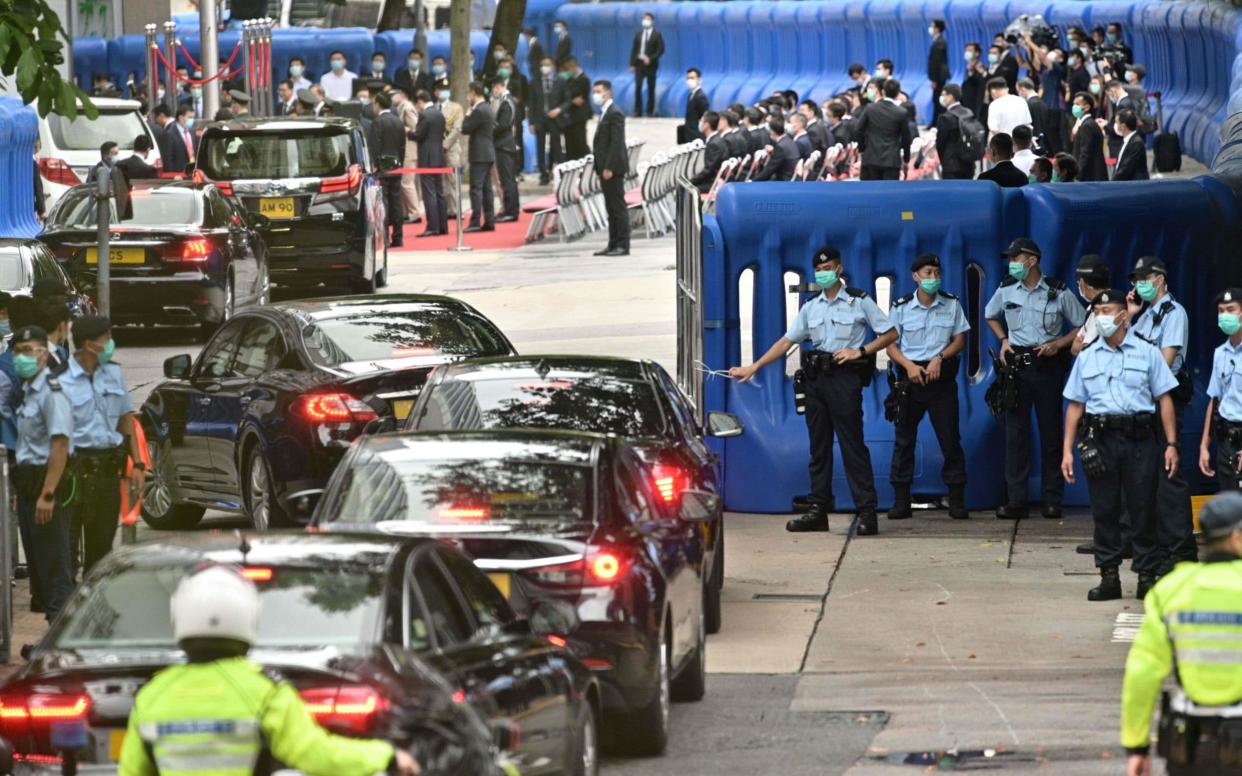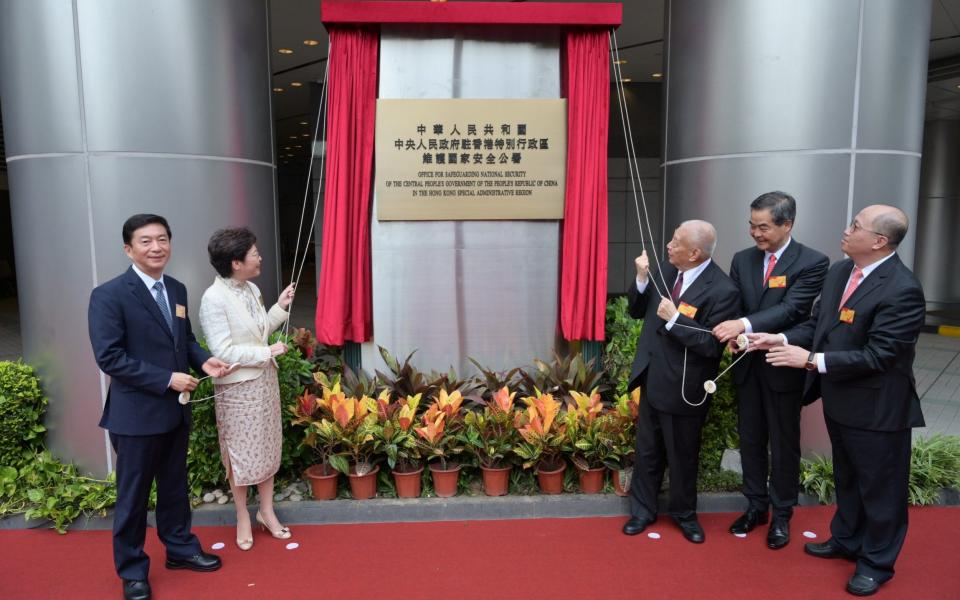China unveils national security office in Hong Kong as activist calls on UK to terminate extradition agreement

China opened its new office to oversee the implementation of a sweeping national security law imposed on Hong Kong on Wednesday, as a prominent pro-democracy activist called on the UK to axe its extradition agreement with the special territory.
Authorities unveiled a plaque bearing the agency’s name, the Office for Safeguarding National Security, transforming a hotel for their use by a public park, a frequent protest site.
Government officials have said the national security law, which criminalises secession, separatism, terrorism, and collusion with foreign forces, will restore order in Hong Kong, which has been roiled by mass protests since last year. The offences are punishable by up to life in prison.
Carrie Lam, Hong Kong's chief executive, said launching the office was a “historic moment, because we are witnessing another milestone in the establishment of a sound legal system and enforcement mechanism for maintaining national security."
Many fear the national security law grants the government far too much power to crush dissent, especially as suspects could face trial in mainland China, subjecting them to the country’s opaque criminal justice system.

As such, pro-democracy activist Nathan Law is calling on foreign governments, including the UK, to terminate extradition treaties with Hong Kong.
“The international community must work together from now on to establish a resolute front against the CCP’s [Chinese Communist Party’s] totalitarian menace, resisting its further encroachment on global freedoms,” wrote Mr Law in an open letter to leaders of seven countries, including the UK and US.
The national security law, the contents of which were made public only as it came into force last week, represents the most radical change since 1997 when the former British colony was returned to Beijing.
Aside from criminalising everything from online speech to unlawful provision of state secrets – broadly defined in the past by Chinese authorities – it also applies to actions committed outside of Hong Kong deemed a threat to national security.
The law also gives police extensive powers, such as covert surveillance and warrantless raids, allows for secretive mainland security agencies to operate openly in Hong Kong for the first time, and for judges to be chosen by the city’s chief executive.
China maintains jurisdiction over the most serious cases, dismantling the divide between the mainland’s party-controlled courts with a 99.9 per cent conviction rate, and Hong Kong’s independent judiciary.
The national security law is one of many developments under Xi Jinping, the leader of the Communist Party, that prompted US FBI director Christopher Wray to call China the “greatest long-term threat” to the US.
Americans are increasingly at risk of being targeted by Chinese espionage seeking to glean personal, proprietary and government information, Mr Wray said in a speech Tuesday.
He also detailed a program, dubbed “Fox Hunt,” aimed at coercing overseas Chinese critical of Beijing policies to return in order to silence them within mainland borders.
Families of those who refuse have been threatened and arrested in China “for leverage,” he said. In one case demonstrating overreach, the Chinese government “Sent an emissary to visit the target’s family here in the United States.”

The US has grown increasingly hawkish in its stance toward China, with different parts of government pressuring Beijing.
Mike Pompeo, the US secretary of state, announced Tuesday it will restrict visas for some Chinese officials over human rights abuses by the government in Tibet areas in response to Beijing “systematically” obstructing travel to the region for foreign diplomats, journalists and tourists. The US continues to support “meaningful autonomy” for Tibet.
China’s foreign ministry fired back, saying it would also restrict visas for Americans with “malicious” intent toward Tibet, using a broad term in Mandarin that encompasses US officials and citizens.
On Tuesday, Deborah Birx, the US coronavirus task force response coordinator, said China could have done more to aid world pandemic response by providing more information initially about key features of the virus, as then the US, other countries would have prepared a more robust response.
Dr Birx said the US would have focused more on identifying asymptomatic cases if China had shared details about the frequency with which people were infected, but without symptoms.
“We were looking for people with symptoms,” she said. “We should have looked for anyone who would have been exposed.”


